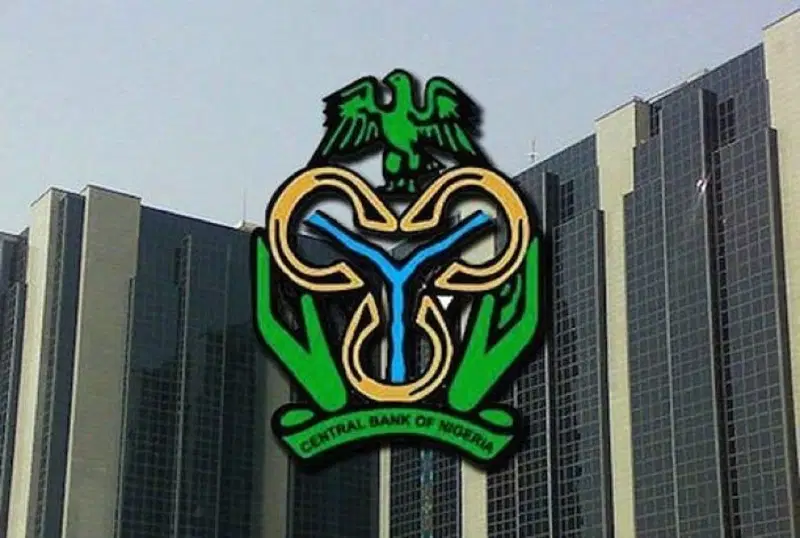Fuel subsidy removal, others can pose risk to external reserves – CBN

The Central Bank of Nigeria, CBN, has said that fuel subsidy removal, lower import bills and increased external debt servicing obligations could pose downside risks for the growth of external reserves by 2024/2025.
CBN disclosed this in its Monetary, Credit, Foreign Trade and Exchange Policy guidelines for fiscal years 2024/2025.
However, the apex bank projected an overall positive economic growth for the period based on continued policy support to the agriculture and oil sectors, reforms in the foreign exchange market, and the effective implementation of the Finance Act 2023 and the 2022-2025 Medium-Term National Development Plan (MTNDP).
The apex bank stated: “The outlook for Nigeria’s external sector in 2024/2025 is optimistic, on the expectation of favourable terms of trade, occasioned by sustained rally in crude oil prices and an improvement in domestic crude oil production.
“The positive outlook is supported by the sustenance of crude oil price, propelled by the decision to cut production, and gains from capital flows and remittances.
“However, lower crude oil earnings, fuel subsidy removal, rising import bills and increased external debt servicing obligations could pose downside risks for the accretion to external reserves.
“In addition, the sustained monetary policy tightening by central banks across advanced economies increases the risk of capital outflow.”
On Nigeria’s output growth, CBN said: “Nigeria’s output growth is expected to maintain a positive trajectory in 2024/2025.
“The growth prospects are dependent on continued policy support in the agricuture and oil sectors, reforms in the foreign exchange market, and the effective implementation of the Finance Act 2023 and the 2022-2025 MTNDP.
“The risk to the outlook is still tilted to the downside, characterized by significant headwinds such as rising energy prices emanating from lingering effects of the Russia Ukraine war, and the persisting security and infrastructural challenges, which could undermine the growth outlook in the short to medium term.
“Domestic prices are expected to remain elevated through 2024/2025, on the back of spillovers from global supply constraints, and exchange rate pass-through.
“More so, the persisting security and infrastructural challenges could exacerbate inflationary pressures.
“The performance of the fiscal sector is expected to remain on a positive recovery trajectory in 2024/2025.
“This outlook is contingent on the effective implementation of the Finance Act 2023 and restructuring of key revenue-generating MDAs to boost non-oil revenue.
“However, low domestic crude oil production, growing public debt, lingering insecurity, global economic slowdown, and the Russia-Ukraine war, could pose significant downside risks to fiscal operations in the short-to-medium-term”.
Analysts express divergent views
Commenting on the impact of fuel subsidy removal on external sector, Clifford Egbomeade, Public Affairs Analyst/Communications Expert, said: “The removal of subsidies typically leads to higher fuel prices, and given Nigeria’s heavy reliance on refined petroleum products, this can significantly increase the cost of fuel imports, thereby raising the demand for foreign exchange. As a result, external reserves may come under pressure due to the increased use of foreign currency to cover these higher import bills.
“Additionally, the resulting inflationary pressures could affect the broader economy, driving up the cost of goods and services, and potentially leading to tighter monetary policies. Public discontent over rising fuel prices may also disrupt economic activities, particularly in transport and logistics, further straining foreign exchange earnings.
“However, in the long term, the removal of subsidies could help the government reduce fiscal deficits, redirect spending towards infrastructure, and improve investor confidence. While the short-term risks to external reserves are real, careful management of the transition could pave the way for stronger fiscal health and more stable reserve growth in the future.”
Also commenting, Ayodeji Ebo, Managing Director/Chief Business Officer, Optimus by Afrinvest, said that contrary to the CBN’s assertion, the fuel subsidy removal would increase the accretion to external reserves.
He stated: “In my view, the removal of fuel subsidy should increase the accretion to the external reserves given that the NNPC currently deducts from source. “This will stop any deductions and increase the FX remitted to the CBN.”






